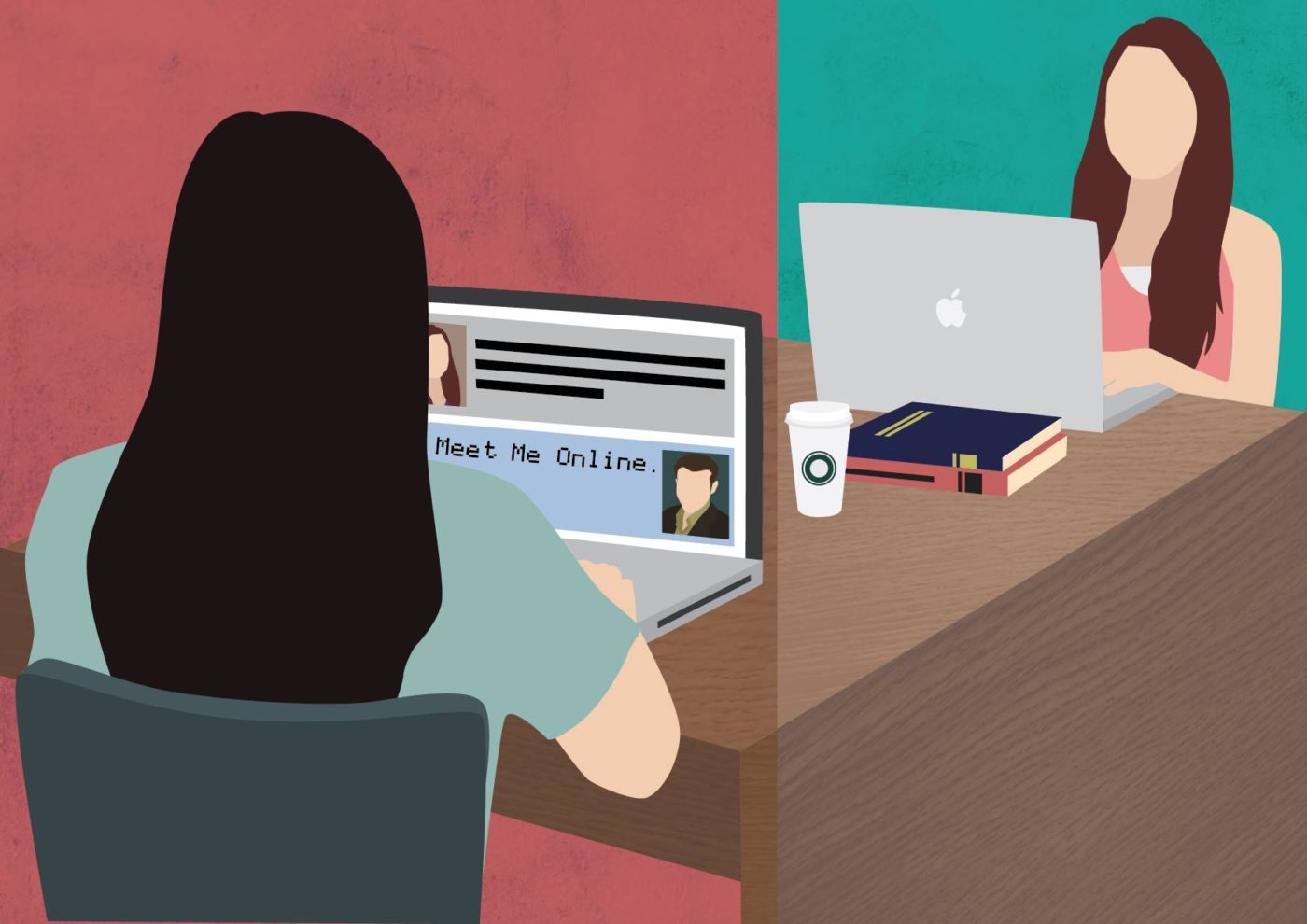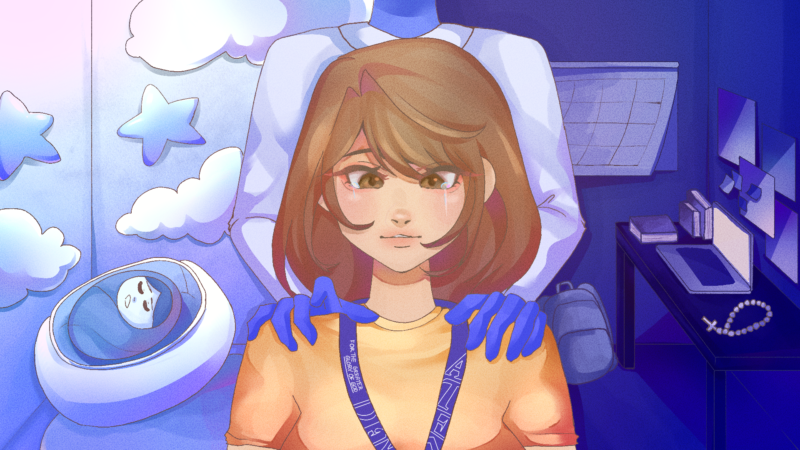She was a friend of a friend, a pianist with a hefty number of SoundCloud uploads, a debater and—the cherry on top of the proverbial sundae—had a cute profile picture on Facebook. To John*, a fresh high school graduate at the time, she seemed like perfect girlfriend material. The only problem?
She didn’t exist.
John, currently a freshman at the Ateneo, fell victim to an increasingly common phenomenon called “catfishing.” The term originated from a 2010 documentary of the same name, where the main character got involved in a romantic relationship with a person who created a false identity through social media accounts. As codfish being shipped from Alaska to China are packed with catfish to keep them active, so too are the people being fooled kept active and interested in the false relationship.
This kind of deception thrives on the anonymity of the Internet. But there are also those whose successful relationships are rooted in online interactions. Which raises the question: How well do online relationships work?
Have we met?
John’s relationship started on Facebook. A girl that his orgmate had often praised sent him a message, he replied and things progressed from there. Although he didn’t share with her many specifics about himself, he learned a lot about her: She was sixteen, studied at International School Manila, had a Filipino mother and a German father and was the eldest among her siblings.
John is not the first person to use the Internet for a romantic relationship, nor is he the last. With the rise of social media, online interaction is now the most popular form of communication. Facebook, Twitter and Skype are some of the better-known social media websites, but there are many other spaces that provide the opportunity for online interaction, such as forums and blog-hosting sites.
There are also, of course, sites specifically geared towards dating, sometimes catering to a distinct audience or preference. Aside form the generic match.com for singles, other more selective sites include Black People Meet, Christian Mingle and Planet Romeo, a site specifically geared towards gay men.
Online chat websites have existed since before the 2000’s, but “stranger chat” sites such as Omegle and Chatroulette became popular only in the past decade. Reminiscent of the chatrooms of the ‘90s, people are paired up to chat online, either randomly or based on their interests. The setup is a lot less serious than dating websites, allowing you to talk to anyone from anywhere in the world.
But without a policing system to filter out the troublemakers, sometimes things can get out of hand. Ateneo student Megan* shares that while on Omegle with her friends, they were greeted by a number of people who were flashing their privates on screen—an experience undoubtedly shared by others who have visited the site.
According to psychology senior Ryan Tamayo, however, interaction on Omegle is not limited to the showing off of privates. The most thrilling thing about it is perhaps the freedom to assume any character one wants. “[People on Omegle] have the freedom to be whatever identity they want to take upon themselves,” he explains.
Finding common ground
Many people form relationships offline through similar interests—it’s no different online. The Internet is even more convenient for finding people who share the same enthusiasm for certain hobbies: All you have to do is type, click and scroll through the myriad communities waiting to welcome you with open arms.
“You can find a person’s art through Tumblr and fall in love with the art,” says Jelly An, a first year English literature major. “[Then] you start conversing and become friends online, you find this person’s profile and you like their songs, their art.”
Jessica*, an Atenean who entered an online relationship when she was twelve, met her then-boyfriend because they shared an interest in writing. “We [met] on this website called the Young Writers Society,” she says. “We became friends, added each other [on] Yahoo! Messenger. At one point, he started to express his interest [in me].”
Commonalities are a great starting point for a relationship, but what comes after—deepening the relationship—is what many people feel is both crucial and challenging about online interaction. Although he thinks finding common ground is great, Angel Yap, a freshman English literature major, wonders what comes next. “How are you going to take the relationship to the next level?”
Psychologically, Tamayo says furthering online relationships can be tough compared to face-to-face interaction. “You can’t see the non-verbal acts,” he says. “You’re only exposed to text. And it’s hard to pin down [what the person really means] sometimes because there are so many possible interpretations. They could say something and mean something else, but in real life you could judge based on their expressions.”
Sometimes, this kind of misinterpretation can be critical. “I didn’t know we were dating until he called me his girlfriend,” shares Jessica, referring to her online flame. They broke up five months after because they “both [had] stuff going on in the real world.”
John’s online relationship didn’t turn out well, either. It was fine at first, the girl proving to be smart and compatible with John, but everything came crashing down when his orgmate revealed that it had been him the entire time.
“I didn’t really have any hard feelings,” John shares, saying he had suspected that it was too good to be true. “I knew that I had been taken in. It was that simple.”
Self-editing
Perhaps one of the most tempting things about the online medium is the control it offers. As quickly as online social interaction can be these days, the distance provided by the Internet and our devices still gifts us with the opportunity to edit ourselves.
For the most part, this practice is harmless. “It’s not like changing entire aspects of their personality, like with catfishing,” Tamayo clarifies. “I guess some people want to look more prepared or better, in a sense.”
When your crush starts gushing about an unknown band, for instance, it’s easy to do a quick Google search to impress them with your knowledge.
This is exactly what the titular Noah did in Walter Woodman and Patrick Cederberg’s short film Noah, which was quietly released this year at the Toronto Film Festival. Set entirely on a teenage boy’s computer screen, the movie shows Noah doing a Google search of Radiohead because Chatroulette had paired him up with a girl who had the band’s poster on her wall. “Thom Yorke,” he names the lead singer, proud of himself.
Jessica found that this happened often when she was with her boyfriend. “You kind of tweak what you’re going to say,” she says. “In an online setting, you can actually think about what you’re going to say before you hit send or enter.”
However, there are those who do find this to be a worrisome aspect of online relationships. “It’s hard to tell if the person is really telling the truth,” says An. “We fall in love with our perceptions, and you’re taking away the physical aspect of that.”
But Tamayo stands by his belief that self-editing is only human. “It’s not negative,” he says. “Some people want to present themselves [in a better way].”
While self-editing may be a normal response, John’s case is proof that there are those who take advantage of this online image-control in order to deceive others.
Although John’s experience was far from ideal, many people have experienced happy, functional relationships with online roots. “I have friends who are very successful [in their online relationships] to the point that they meet each other, get out of that cyber world and get to know each other in a personal level,” says Jessica. “I think it can work and can happen, especially if you know both of you are really seriously into it.”
At the end of the day, online relationships might not be so different from those in real life. As psychologists Eli Finkel and Benjamin Karney put it in an article in the New York Times, “None of [our research] suggests that online dating is any worse a method of meeting potential romantic partners than meeting in a bar or on the subway. But it’s no better either.”







